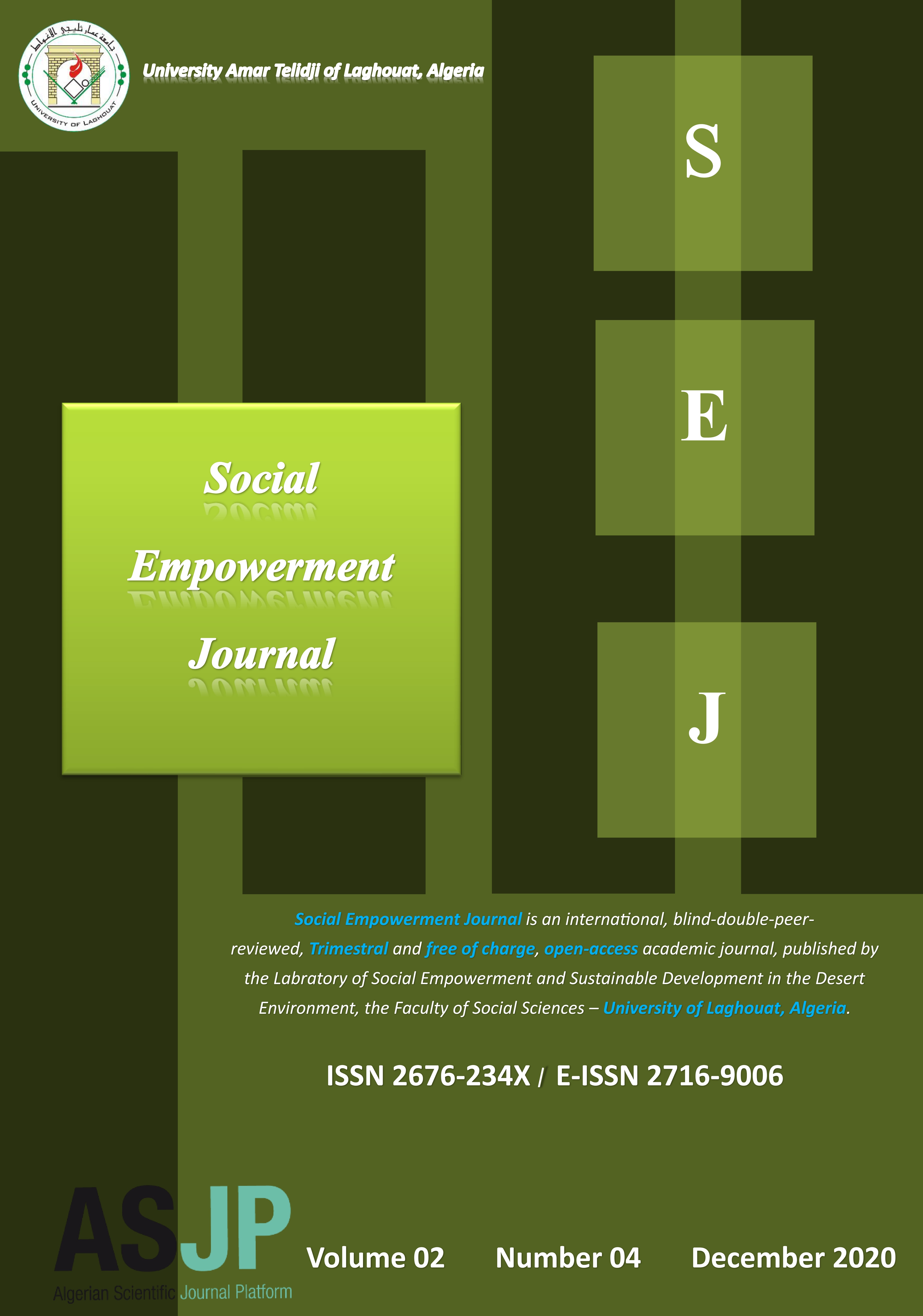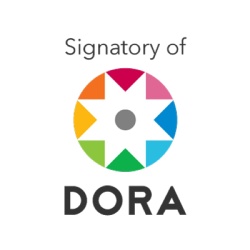دور المؤسسة الدينية كأداة ضبط اجتماعي
دور المؤسسة الدينية كأداة ضبط اجتماعي
الملخص
المؤسسة الدينية بإعتبارها كيان يمثل نسق إجتماعي تنظيمي كباقي المؤسسات الأخرى يرتكز على جملة قوانين وتنظيمات تسيره وتحكمه لخدمة المجتمع في المجال الديني لا يقل دورها أهمية عن باقي المؤسسات الأخرى في المجتمع، هذا الدور المتمثل في البناء الاجتماعي والتربوي والثقافي وغيرها من الأدوار المقدمة لأفراد المجتمع بإستخدام أساليب متنوعة وإعتماد وسائل مختلفة قصد الوصول إلى تحقيق هدفها المسطر في أفضل صورة. لقد تجلت تلك العمليات والأدوار في واحدة من أهم المؤسسات الدينية عند المجتمعات الإسلامية ألا وهي مؤسسة المسجد هذا النسق الإجتماعي التنظيمي الذي يمثل واحدا من أهم المعالم في المجتمع الإسلامي بما يحمله من بعد ديني، حضاري، روحي وإجتماعي...، إن جملة الأدوار والوظائف التي يقدمها المسجد متنوعة وكثيرة في المجتمع كالدور الاجتماعي والذي سار جنباً إلى جنب مع جملة من الأدوار الأخرى التربوية والإقتصادية والسياسية وغيرها والتي كان يقوم بها. كما كان للإمام الدور الأساسي مع تعدد وظائفه ومجالات عمله وأهدافه في المساهمة في عملية التغير الاجتماعي باعتباره من أهم الفاعلين فيها من خلال الخطاب الديني الموجه لتلك الشرائح من المجتمع، هذا الخطاب الذي يمثل أهم منتج مسجدي بما يحمله من أبعاد روحية ومضامين مقدسة ودلالات متنوعة قد يخضع لعدة عوامل تضبطه وتقيده ومن خلال ورقتنا البحثية نحاول الاجابة على التساؤلات التالية: ما هو الدور الاجتماعي للمؤسسة الدينية؟ وكيف يمكن الإرتقاء بالخطاب المسجدي باعتباره أداة ضبط اجتماعي؟
التنزيلات
المراجع
- Arabic references in English:
Tawati, I. (2003). Al-Mubsat fi Al-Fiqh Al-Maliki bil-Adillah. Matba'at Al-Funun Al-Bayaniyya, Algeria.
Ibn Faris, A. (1986). Majma' Al-Lughah. Dar Al-Risalah, Beirut.
Ibn Kathir. (W D). Tafsir, part 6. Dar Al-Andalus, Beirut.
Ibn Manzur. (W D). Lisan Al-Arab, volume 01. Dar Al-Ma'arif, Beirut.
Abu Al-Atayya, A., et al. (2008). Developing Religious Discourse as One of the Contemporary Educational Challenges. Conference on Islam and Contemporary Challenges.
Saeed, I. A. (2013). Al-Asul Al-Ijtima'iyya lil-Tarbiya, volume 01. Dar Al-Salam for Printing, Publishing, Distribution, and Translation, Egypt.
Al-Hujailan, A. A. (2002). Khutbat Al-Jum'a wa Ahkamaha Al-Fiqhiyya, volume 01. Research Centre for Islamic Studies, Ministry of Islamic Affairs, Endowments, Da'wah, and Guidance.
Al-Saffar, H. (2005). Al-Khitab Al-Islami wa Huquq Al-Insan, volume 01. Al-Markaz Al-Thaqafi Al-Arabi, Marocco.
Al-Tayyar, A. A. (2005). Ta'wil Al-Khitab Al-Dini fi Al-Fikr Al-Hadathi Al-Jadid. No. 22. Vol. 3. Hauliyat Kulliyat Asul Al-Din, Cairo.
Al-Tayyar, A. A. (2005). Interpreting Religious Discourse in Modernist Thought, No. 22. Vol. 3. Halayat Kulliyat Asul Al-Din, Cairo.
Al-Omari, M. (2008). The Current Status of Mosque Discourse and National Religious Authority. Mosque Message, No. 1. Algeria: Ministry of Religious Affairs and Endowments.
Al-Fatlawi, A. (2012). A Treatise on the Art of Public Speaking, Dialogue, and Debate, 2nd ed. Department of Islamic Studies and Research, Iraq.
Al-Qahtani, S. B. A. (W D). Friday Prayer. Salat Al-Mu'min Series, No. 14. Sefir Printing Press, Riyadh.
Al-Waify, S. (2010). The Role of Official Religious Institutions in Social Change. [Master's Thesis in the Sociology of Religion, University of El Hadj Lakhdar Batna].
Bou Saada, R. (2007). The Imam and the Mosque Between Religion and Politics. [Doctoral Thesis in Sociology, University of Algiers].
Bouqalloula, A. (2007). Religious Discourse and its Teleological Dimensions. Mosque Message, Year 5, No. 1. Algeria: Ministry of Religious Affairs and Endowments.
Hassan, M. H. (2007). Renewal of Religion. Research submitted for the Naif Bin Abdulaziz Prize.
Rakan, A. K. H. (W D). Persuasion Engineering in Human Communication. Jeddah Publishing House, Saudi Arabia.
Mahfouz, A. (1984). The Art of Oratory and Preparing the Orator. Dar Al-Nasr for Islamic Printing, Beirut.
Shalabi, A. A. (1978). Oratory and the Preparation of the Orator, 3rd ed. Dar Al-Shorouk, Cairo.
Nashir Al-Na'am, M. A. (2003). Friday Sermon Between Reality and Ideal. Mosque Message, No. 2. Year 1. Algeria: Ministry of Religious Affairs and Endowments.
Nassib, M. (W D). Aspects of Science and the Qur'an in Algeria. Dar Al-Fikr, Algeria.
Official Gazette. (Issued by the Algerian Republic). No. 58. Year 50. Monday, 14th Muharram 1435 corresponding to 18th November 2013.
Sara, Muhammad al-Khattab. (2013). Social control in Iraq before and after 2003, the civilized dialogue, issue: 4011, pp. 23-42, date of redemption: 05/11/2020, from: https://www.ahewar.org/debat/show.art.asp?aid=346830
Alla, Naji. (2017). The religious institution and its role in promoting civic education, redemption date: 05/11/2020, from: https://annabaa.org/arabic/studies/13621
Wikipedia. (2018). Ministry of Religious Affairs and endowments (Algeria), redemption date: 05/11/2020, from: https://n9.cl/g7pevh
The World Forum of mediocrity. (2016). Religious discourse in light of contemporary challenges, redemption date: 05/11/2020, from: https://www.wasatyea.net/en/node/5175
The Supreme Islamic Council. (2019). Introduction to the council, refund date: 05/11/2020, from: https://n9.cl/8dsmp

هذا العمل مرخص حسب الرخصة Creative Commons Attribution-NonCommercial 4.0 International License.









